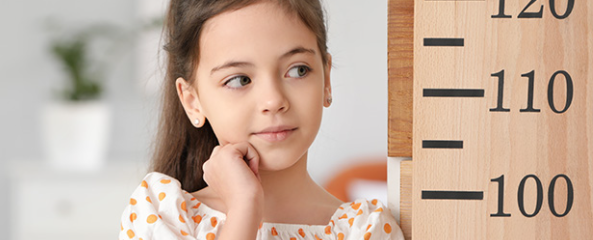Parent Partnerships

Growing up is not straight-forward
The pandemic has delivered change and upheaval to families on an enormous scale. However upheaval is not new for some children, particularly those who’ve experienced illness, a loss of a loved one or who’ve moved home and changed schools. Each change requires acceptance, adjustment and an attitude realignment to help them fit the new circumstances. Every change is an opportunity for a child to grow and develop, if they are supported, and they’re not overwhelmed by the experience.
The twists and turns of development
A child’s pathway to adulthood, and the accompanying journey of their parents, is generally viewed as linear. Growing up is seen as a straightforward march from infancy, early childhood, childhood, adolescence, post-adolescence to adulthood. If COVID has taught us anything it’s that a child’s journey is full of twists and turns.
While your child has a developmental clock that keeps ticking over, it’s their experiences that determine their maturity and their ability to reach fully-fledged adulthood with the resilience, grit and adaptability needed to thrive. These experiences that develop maturity and coping capacities fit into two broad areas – challenging experiences and positive experiences.
Challenging Experiences
The challenging experiences that a child encounters enable them to build their coping capacities and develop their emotional resources that contribute to their maturity. These challenges include:
Conflict
Disagreements, arguments and rivalry is part of growing up. Whether it’s a dispute with siblings or a fallout with a friend, negotiating conflict is a developmental task.
Rejection
Rejection by a friend or group is hurtful and feels horrible, but it also builds a level of social smarts and judgement necessary for navigating relationships in later life.
Loss
This takes many forms including a friend moving away, the death of a pet or the passing of a family member. Loss is the cause of sadness, grief and heartbreak that can feel overwhelming. However, with time and support kids learn to cope and get on with their lives.
Disappointment
Losing a game, not being picked for a team, not receiving a gift they wanted are unpleasant but character-building experiences that help kids develop perhaps the most treasured resilience capability of them all – acceptance.
Failure
Mistakes are seen in three ways. They are activities to be avoided, signs of failure, or opportunities for further learning. Resilient learners know that mistakes, even initial failures, are part of every learning process so the risk of failure doesn’t hold them back. Children and young people grow from these experiences as coping and recovery generally build character, confidence and resilience.
Positive experiences
Though children and young people will inevitably experience challenging experiences, positive experiences help to balance the experience ledger by building a child’s identity, wellbeing and emotional collateral.
Love
Knowing that a child is loved and loveable is at the core of their self-worth. Self-esteem and identity built in adolescence needs a solid foundation of self-worth.
Friendship
Making and keeping friends is an essential life task linked to many aspects of happiness and wellbeing.
Contribution
The ability to belong to groups through contribution fulfils a basic need. It allows children to experience real gratitude and feel needed, which builds self-esteem.
Excitement
Fun, joy, excitement! Any activity that shifts a child’s emotion from unpleasant, low energy to pleasant and high energy is a good thing.
Play
Involvement in enjoyable activities such as hobbies, interests, sports, music, games, creative and performance arts are central to healthy wellbeing. Activities that are fun, freely chosen and create flow (the ability to lose track of time) fit the criteria of play.
In closing
A child’s age and related milestones is a recognised marker of their development. However, their life experiences, as much as the number of birthdays they’ve had, contribute to their maturity, resilience and readiness for the wider world.
Free Webinar
Building lasting happiness in children
When you ask parents what they want for their kids, by far the most common reply is “I just want them to be happy”. And though this desire goes hand-in-hand with such things as good health, an education and a safe place to call home, happiness is a really difficult area for parents to navigate or seek assistance with. Nobody denies the importance of happiness, but how many parents have ever been shown how to model and implement it? In this webinar, Dr Jodi Richardson explains how lifelong happiness stems from how we think and what we do, rather than from what we have. Key learning and discussion points include:
- A new definition of happiness
- What stands in the way of happiness
- Why the science says “more stuff” doesn’t make us happier, and what to do instead
- The skills of happiness - quantifiable, helpful areas of output for parents to nurture in their children
- Evidence-based strategies to increase happiness
Presented by Dr Jodi Richardson Anxiety and wellbeing speaker, author, educator
Video overview Click this link to view the video overview: https://vimeo.com/678464264When Wednesday 23 March 2022 at 8:00 PM AEDT Redeem your webinar now - it's easy
- Click this link: https://www.parentingideas.com.au/parent-resources/parent-webinars/webinar-building-lasting-happiness-in-children
- Click ‘Add to cart’
- Click ‘View cart’
- Enter the coupon code HAPPY
- Click ‘Apply coupon’
- Click ‘Proceed to checkout’
- Enter our school’s name to verify your eligibility. The $39 discount will then be applied.
- Fill in your account details. These are the details you will use to login to your account and access your webinar and resources
- Click ‘Place Order’
This offer is valid until 23 June 2022. If you’re unable to make the broadcast time, just register anyway and you will get access to the recording.


